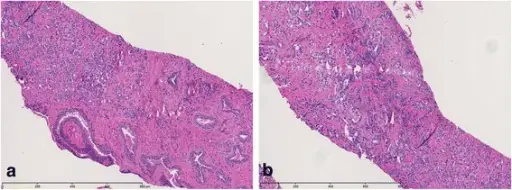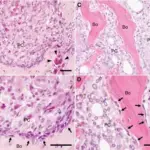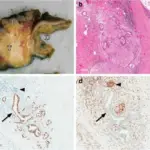Prostate adenocarcinoma is epithelial cancer originating from prostate glandular tissue with excretory properties.
What is the Pathology of Prostate Adenocarcinoma?
The pathology of prostate adenocarcinoma is:
-Etiology: The cause of prostate adenocarcinoma is, family history, age, hormone level, race, and environmental factors.
-Genes involved: PTEN gene deletion and ERG gene.
-Pathogenesis: The sequence of events that lead to prostate adenocarcinoma; Androgen acting in paracrine manner diffuse into neighboring epithelial cells, binds to nuclear androgen receptors, and motions transcription of mitogenic growth factors to the stromal cells and epithelial cells.
-Morphology: The morphology associated with prostate adenocarcinoma shows solid gray-white/ yellow areas, tumor grossly indiscernible.
-Histology: The histology associated with prostate adenocarcinoma shows large nuclei with prominent nucleoli, vague eosinophilic secretions, cytoplasmic tincture, crystalloids, and blue mucin lumen.
How does Prostate Adenocarcinoma Present?
Patients with prostate adenocarcinoma are typically older men. The symptoms, features, and clinical findings associated with prostate adenocarcinoma include urinary tract symptoms, and hematuria.
How is Prostate Adenocarcinoma Diagnosed?
Prostate adenocarcinoma is diagnosed through laboratory studies which may include prostate specific antigen test, and biopsy.
How is Prostate Adenocarcinoma Treated?
Prostate adenocarcinoma is treated by medical care and prostatectomy.
What is the Prognosis of Prostate Adenocarcinoma?
The prognosis of prostate adenocarcinoma is poor especially with Gleason score 6 and above, and stage III or higher.



